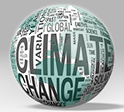Financial Innovation and The State: Lessons for 21st Century Climate Finance from the 19th Century Railways Era
Par Dipak Dasgupta
This paper seeks to bring a historical perspective to current global financial architecture issues on the speed and scale of climate finance needed to achieve a safer two degrees world. We look back in history to a similar episode for lessons: the financing and building of railroads in the 19th century.



